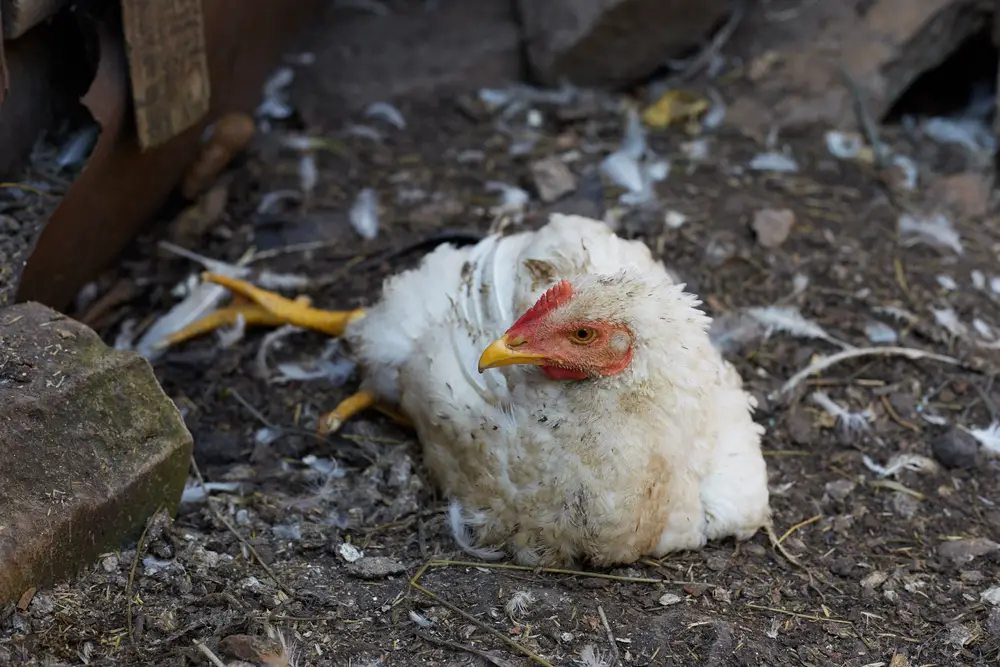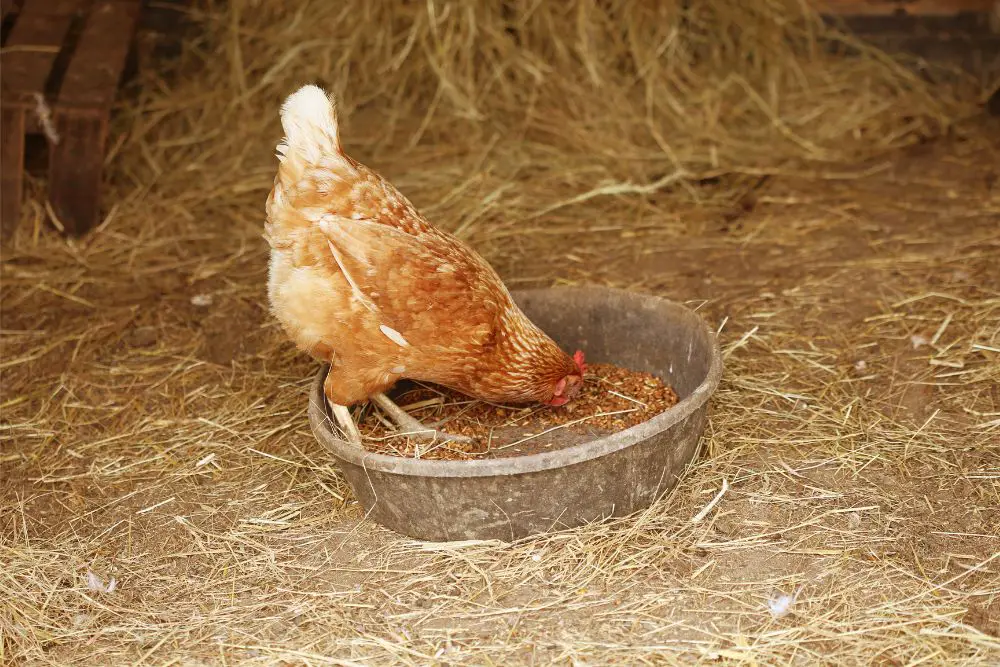Medicated chicken feed is best for bids that are unvaccinated against Coccidiosis. The feed itself contains Amprolium which is a medication that helps reduce cocci oocysts from forming and multiplying throughout a chicken's digestive system, and offers little value for vaccinated birds.
Choosing the right chick starter feed for your chicks is key to making sure that they grow to be healthy and strong. With so many different types of poultry feed on the market, it can feel like an overwhelming decision to make.
You’ll often notice that some are labeled as “medicated” while others are “non-medicated”, so which one is right for your chicks?
This article discusses the difference between medicated and non-medicated starter feeds, so you can find the best option for your chicks.
Table of Contents
What is Medicated Chicken Feed?
Medicated chicken starter feed is used to combat a disease known as coccidiosis.
This is a common condition where a chick will contract a parasite through its digestive tract and the parasite prevents the chick from absorbing nutrients. The prevention of coccidiosis is important it can lead to serious health issues and even the death of your flock.
Medicated feed contains Amprolium which is effective at preventing coccidiosis. This medication helps prevent cocci oocysts from forming and multiplying throughout the digestive system.
Medicated starter feed is a preventative measure and shouldn’t be considered a treatment. While it can be incredibly useful for combating coccidiosis, it does not cure a bird that gets infected. Many chicken keepers choose to have their chicks get the coccidiosis vaccine at birth, which can prevent coccidiosis from occurring.
Coccidiosis in Baby Chicks
Coccidiosis is one of the most serious diseases that can affect baby chicks and can even be one of the deadliest. Once a chick has ingested an oocyst, the microscopic egg of a parasite, they are at risk of developing coccidiosis.
Sometimes the oocysts will hatch right away and immediately start multiplying in the digestive system. On other occasions, the eggs can remain dormant within the chick for up to a year without hatching, making it difficult to track whether or not your chicks are infected with coccidiosis.

Infection usually occurs when the oocysts are in the right conditions to hatch. The eggs are likely to sporulate if the temperature is between 70 and 90 degrees Fahrenheit and it’s wet and humid. Uncleaned or damp waterers and feeders are both common places where chicks could come into contact with oocysts.
Chicks will usually consume the oocysts by either drinking water or eating food that has eggs on it. The eggs can also be contracted when a chick is scratching in the dirt or pecking at their droppings, so your brooder and coop should always be properly cleaned out and kept dry.
Medicated Vs. Non-Medicated Chick Feed
When it comes to the debate of whether or not medicated chick starter is right for your flock, there’s usually a consensus that vaccinated chicks are fine with non-medicated food and unvaccinated chicks could benefit from medicated food.
If you got your chicks from hatcheries, then your chicks have likely been vaccinated for both Marek’s Disease and Coccidiosis.
It is usually recommended to use non-medicated feed with vaccinated chicks because amprolium could interact with the vaccination negatively.
While there aren’t usually side effects seen in the interaction of amprolium and the coccidiosis vaccine, it is possible that the effects of amprolium aren’t compatible with the vaccine’s ingredients. One should use caution and monitor your chicks’ behaviors when using medicated food on vaccinated birds.
Have your chickens eat medicated food if your chicks haven’t received vaccinations. Amprolium prevents coccidiosis from uptaking and multiplying, so having your chicks consume this medication while they are vulnerable to the disease is a great way of preventing it from happening.
It’s also important to consider what other nutrients are present in the starter grower feed that you’re giving your chicks. A chick will often be healthy if its diet is well balanced and rich in vitamins, minerals and proteins that encourage strong intestinal health.
Look for a complete feed that provides probiotics, prebiotics, dietary yeast, and other beneficial bacterias that boost gut microflora. When combined with Vitamin A, methionine, calcium and amino acids, all of these ingredients will allow your chicks to grow strong bones, muscles and organs that will be more resilient to disease.
| Pros | Cons |
| Easier to administer than vaccinations | Slightly more expensive than ordinary feed |
| Available at all major chicken feed stores | Not recommended for vaccinated chicks |
| Typically is a complete feed with other beneficial bacteria |
Other Methods to Prevent Coccidiosis
Once you know what kind of starter feed is right for your chicks, there are other steps that you should take to lower the risk of coccidia and other bacterial infections:
1. Clean Food and Water
In order to reduce the number of parasites that are present and prevent them from multiplying out of control, make sure to always get rid of soiled food and old water. Parasites love to multiply in wet and humid areas. Old food and still water are the perfect places for them to thrive, so rotating your food and water dishes regularly will make all the difference in keeping the number of parasite eggs to a minimum.
2. Use the Right Feeders and Waterers
There are many well designed feeders and waterers that are meant to keep your chicks from jumping in and rolling around in the food or water. Chick feeders are usually a covered shallow dish that will have small holes cut at the top for your chicks to peck at the food through. This eliminates the chance that they will get dirt and other contaminants into the food.
Instead of having open watering areas, use nipple drinkers to keep outside contamination out of the equation altogether. Chicks will naturally take to drinking out of nipple drinkers and they are proven to reduce the chances of disease.
3. Feeding and Living Area Cleanliness
Keeping your chicken coops and brooders clean is absolutely essential for also keeping your flock clean and healthy. Regularly cleaning out the spaces where your chicks spend most of their time will reduce the amount of contact that they have with unwelcome bacteria or mites.
4. Know When to Change Feeds
Chicks only need to be fed a starter feed until they reach about 16 weeks of age. Once you move on to another layer feed, you might want to consider using probiotic and prebiotic supplements to better support their gut health and immune system.

